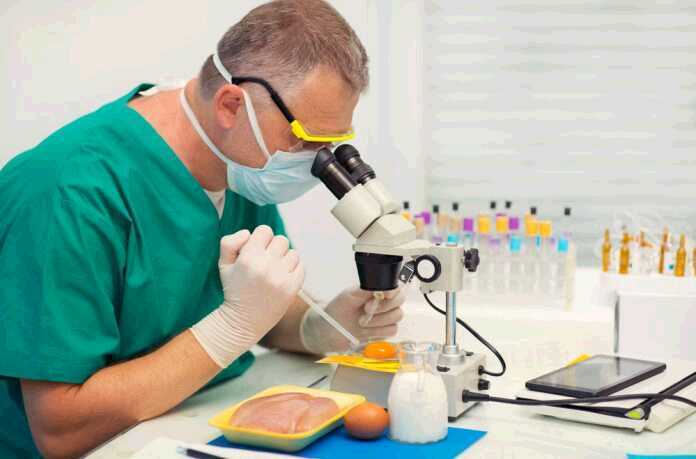
Salmonella poisoning is a bacterial illness that usually comes by way of eating infected meat or produce. While this particular type of bacteria has been found in other sources, such as water, the most common source of the bacteria is the food you eat—including food you’ve prepared right in your kitchen.
What Is Salmonella?
Salmonella is a bacteria found in the feces of humans and animals. Food sources that have been contaminated have, in some manner, come into contact with contaminated feces. Typically, salmonella is associated with raw or undercooked meats and dairy, but it has also been found on fruits and vegetables. This particular bacteria is not guaranteed to cause a fatal illness, but there are a reported nearly 400 Salmonella-related deaths each year, making it a dangerous organism to imbibe.
How to Prevent Salmonella Poisoning
1. Wash Your Hands
Wash your hands on a regular basis. Each time you use the bathroom, you must wash your hands to prevent coming into contact with it. Each time you handle an animal, you should complete a quick wash and rinse, and each time you handle raw food, you should soap up. Each of these precautions can help keep your body healthy and bacteria-free.
2. Wash Your Produce
It might seem harmless to bite into a raw apple for your next snack, but make sure you at least rinse the apple before eating next time. Ideally, you should soak your produce in a bath of produce disinfectant and water before eating—especially if you plan to eat produce uncooked.
3. Always Check Your Meat Before Eating
Meat should reach an internal temperature of 160 degrees before it is consumed. Failing to heat it to this degree could leave bacteria intact and give you a food-borne illness. A small kitchen thermometer will be more than sufficient to give you an idea of how well your meat is cooked, and the process is as simple as sticking the sharp end of the thermometer into the middle of the dish.
4. Avoid Raw Food
Whenever possible, cook or cure your food. Raw cheese, raw meat, and even raw vegetables run the risk of transmitting illness, so make sure you cook your food as often as possible. Fruits can also be cooked in the form of baked apples or applesauce, or placed into tarts or preserves. Each food item you cook, the chances of contracting salmonella decrease.






























